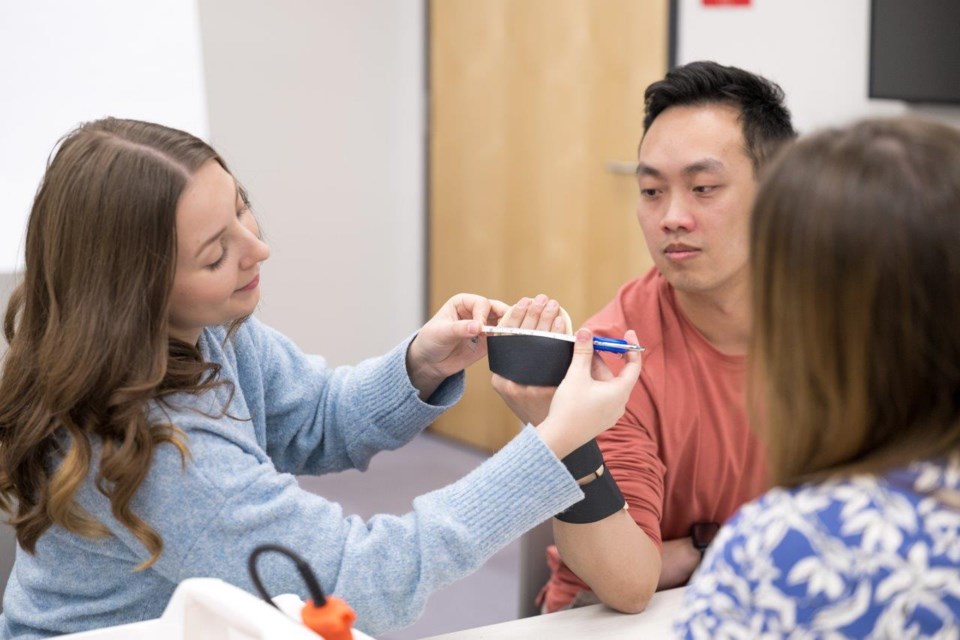Students in the newly expanded occupational therapy (MOT) program at UBC are now learning and training in the north.
Based out of Prince George, the MOT program was expanded last fall with the goal of inspiring more OT graduates to stay and practice in northern, rural and remote communities across B.C., as well as increase access to OT services for patients.
It was created with funding from the B.C. Government, and is delivered in partnership with the University of Northern British Columbia (UNBC).
“I’m from northern B.C., so I’m really excited to be learning and training here,” said Miranda Doerksen, a first-year student.
“There’s such a need for occupational therapy (OT) services here and now I’m able to get the practical skills and experience I need to best serve our communities.”
Occupational therapists do things like teach people how to live independently after a stroke; provide vehicle modifications so that people can drive safely; help children with cognitive or physical disabilities participate in play with their peers; or lead group counselling sessions for people living with mental health challenges.
“We know that students are more likely to practice in their home communities or where their training took place,” said Dr. Susan Forwell, head of UBC’s department of occupational science and occupational therapy.
“This expansion provides students with the exposure they need to build deep connections with the communities, as well as learn about all the career possibilities that are in these areas.”
UBC OT students at the Vancouver and Prince George sites study the same curriculum. However, some of the coursework in Prince George has a northern and rural focus, explains Elisha Williams, assistant professor and clinical lead for fieldwork for the MOT program in Prince George.
“You’re really a jack of all trades in smaller communities, so your scope of practice can be broad. You might work in hospitals, long-term care homes, community centers and doing outreach,” she said. “And our case studies reflect that. Students also gain the exposure and experience they need through clinical placements.”
Williams said the UBC MOT program focuses on the importance of patient-centered, team-based care through inter-professional learning. The program is also expanding its focus on Indigenous wellness.
Dr. Forwell noted the lasting impact for northern and rural communities will be profound.
“People will be able to access care closer to home,” she said. “And have an occupational therapist who is deeply in tune with the needs of the community.”
Come this fall, a new class of UBC MOT students will begin their studies in the north further expanding the program’s reach.



